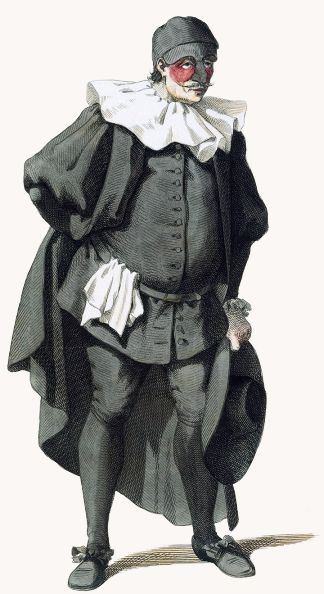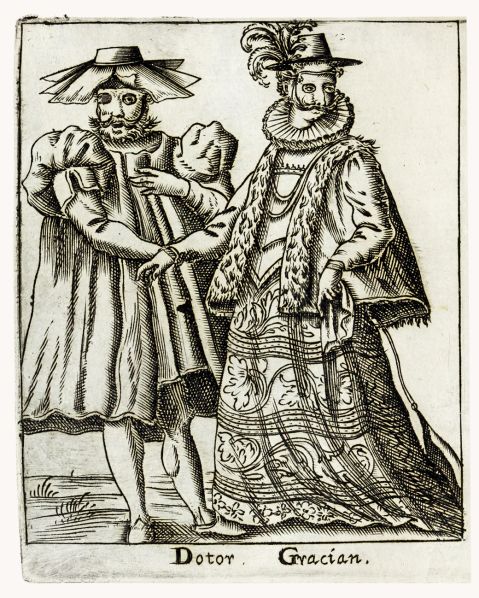



The name Balanzone seems to be coming from "balle" (lies), and gives well the idea of this mask, which pretends to have a total knowledge, supported by his science, arrogance and ignorance.
Born in Bologna, at the time in which the University was well established in the capital of Emilia (second half of 16th century).
Balanzone is rather fat (fat = rich), always dresses in black, is well groomed, rich looking, and talks and talks, a river of ostentatious useless science, teasing the current exaggerated belief in science and humanism.
The Doctor is the second old folk together with Pantalone in the Commedia dell'Arte, and first appears on stage in the mid 16th century, with the name of Graziano (or Grazian Baloardo), which later became Dottor Balanzone.
The Doctor character is normally used in the Commedia dell'Arte plays to put a break in the action, with empty, pre-fabricated and supposedly erudite monologues.
The Doctor is member of every academy (known or unknown) he knows everything and makes citations in cultivated Greek or Latin, too bad they are never right.
On stage he is very seldom a medicine doctor for real, he more often impersonates a Lawyer, a Judge, or the Notary Public.
Popular belief, hostility toward these "I know everything" characters, shows how the "Commedia dell'Arte" used to characterize and make irony on everyday life, pulling the leg on every established belief, anarchic force in a rigid and schematic world, with the typical Italian humor and self-irony.
"Quand le docteur parle, l'on doute
Si c'est latin ou bas-breton,
Et souvent celui qui l'écoute
L'interrompt à coup de bâton."
"When the doctor talks it is doubtful
if it is latin or a South-Bretagne dialect,
And very often who is listening to him
Interrupts him with club blows."